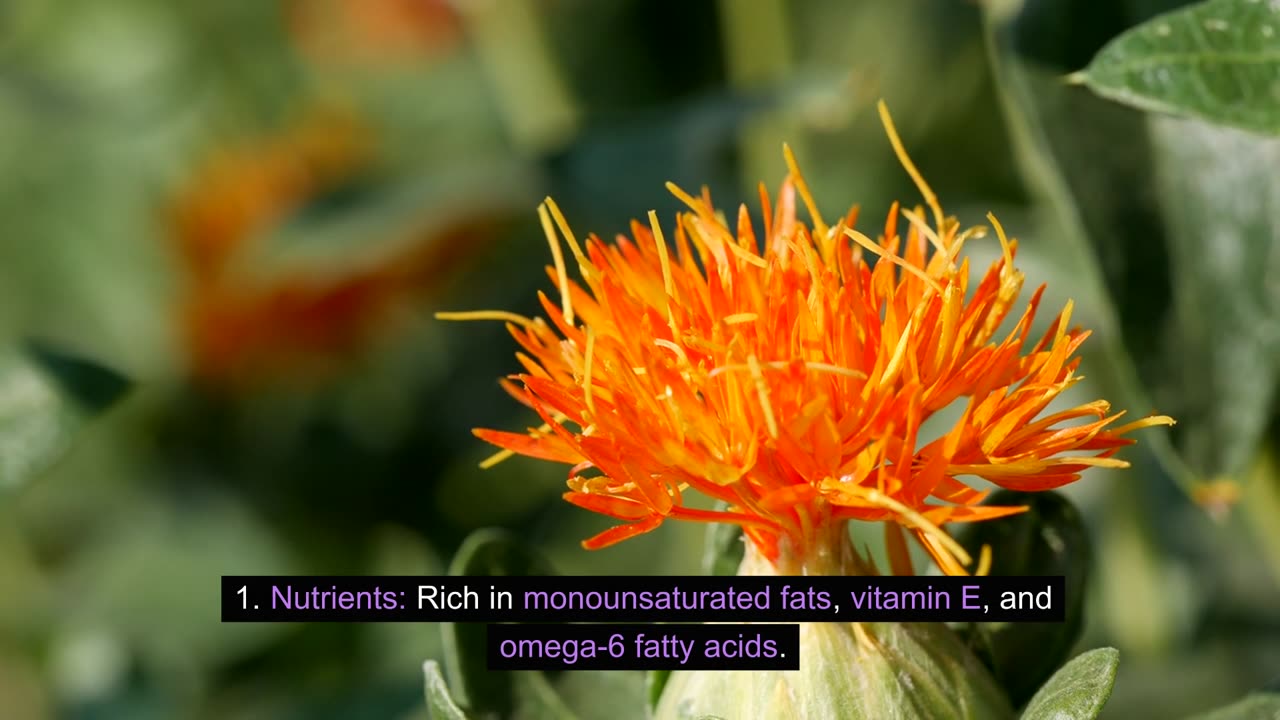Premium Only Content

Top 10 seeds you should start eating today to improve your health
Including a variety of seeds in your diet can provide numerous health benefits, as they are rich in essential nutrients, fiber, and healthy fats. Here are ten seeds you may want to consider incorporating into your diet and the reasons why:
Chia Seeds:
Nutrients: High in omega-3 fatty acids, fiber, protein, calcium, magnesium, and antioxidants.
Benefits: Supports heart health, aids in digestion, and provides sustained energy.
Flaxseeds:
Nutrients: Rich in omega-3 fatty acids, lignans, fiber, and antioxidants.
Benefits: Supports heart health, may help lower cholesterol, and has anti-inflammatory properties.
Sunflower Seeds:
Nutrients: Good source of vitamin E, magnesium, selenium, and protein.
Benefits: Supports skin health, boosts immune function, and provides energy.
Pumpkin Seeds (Pepitas):
Nutrients: High in magnesium, zinc, iron, and protein.
Benefits: Supports immune function, may improve heart health, and provides essential minerals.
Sesame Seeds:
Nutrients: Rich in copper, manganese, calcium, and fiber.
Benefits: Supports bone health, provides antioxidants, and may help regulate blood pressure.
Hemp Seeds:
Nutrients: High in omega-3 and omega-6 fatty acids, protein, and magnesium.
Benefits: Supports heart health, provides a complete source of protein, and has anti-inflammatory properties.
Quinoa Seeds:
Nutrients: Contains complete protein, fiber, magnesium, and iron.
Benefits: Aids in weight management, supports muscle health, and provides a range of essential nutrients.
Safflower Seeds:
Nutrients: Rich in monounsaturated fats, vitamin E, and omega-6 fatty acids.
Benefits: Supports heart health, may help regulate blood sugar, and has anti-inflammatory properties.
Poppy Seeds:
Nutrients: Good source of calcium, phosphorus, and manganese.
Benefits: Supports bone health, aids digestion, and provides minerals.
Amaranth Seeds:
Nutrients: High in protein, fiber, calcium, and iron.
Benefits: Supports heart health, provides essential minerals, and aids in digestion.
Remember to incorporate a variety of seeds into your diet to ensure a diverse range of nutrients. It's also essential to be mindful of portion sizes, as seeds are calorie-dense. If you have specific health concerns or dietary restrictions, it's advisable to consult with a healthcare professional or nutritionist before making significant changes to your diet.
-
 34:26
34:26
CarlCrusher
11 hours agoJake Paul's Crew vs Ancient Skinwalker Canyon
9.18K2 -
 16:07
16:07
Chris From The 740
1 day ago $0.30 earnedMy BIGGEST Problem with the Ruger RXM – FIXED by Liberty Build Co!
2.32K1 -
 13:29
13:29
Professor Gerdes Explains 🇺🇦
11 hours agoUS Deploys Warships to Venezuela's Coast: A Show of Force Against Putin's Ally
2.65K -
 12:12
12:12
The Shannon Joy Show
13 hours ago🔥Carcinogens & Fetal Cells In Your New ‘Universal Vaccine’🔥
3.28K2 -
 10:38
10:38
ariellescarcella
11 hours agoOnlyFans Models Fake Being Trans : Queer Activists Are PISSED
2.85K3 -
 8:00
8:00
Congressman Eli Crane
15 hours agoThe D.C. Crime Problem | Democrats' Greatest Lies – Vol.2
37.6K9 -
 2:05:26
2:05:26
Side Scrollers Podcast
20 hours ago4Chan SUES UK Government + Craig Has Mental Illness Fatigue + Knight Rider REBOOT | Side Scrollers
38.4K8 -
 19:26
19:26
GritsGG
1 day agoChat Picked My Hair Color! All Pink Loadout & Operator Challenge!
32.4K4 -
 10:32
10:32
Nikko Ortiz
1 day agoFunniest Fails Of The Month
62K8 -
 1:27:34
1:27:34
TruthStream with Joe and Scott
4 days agoArchitect Richard Gage: 911 truths and more #482
36.8K8